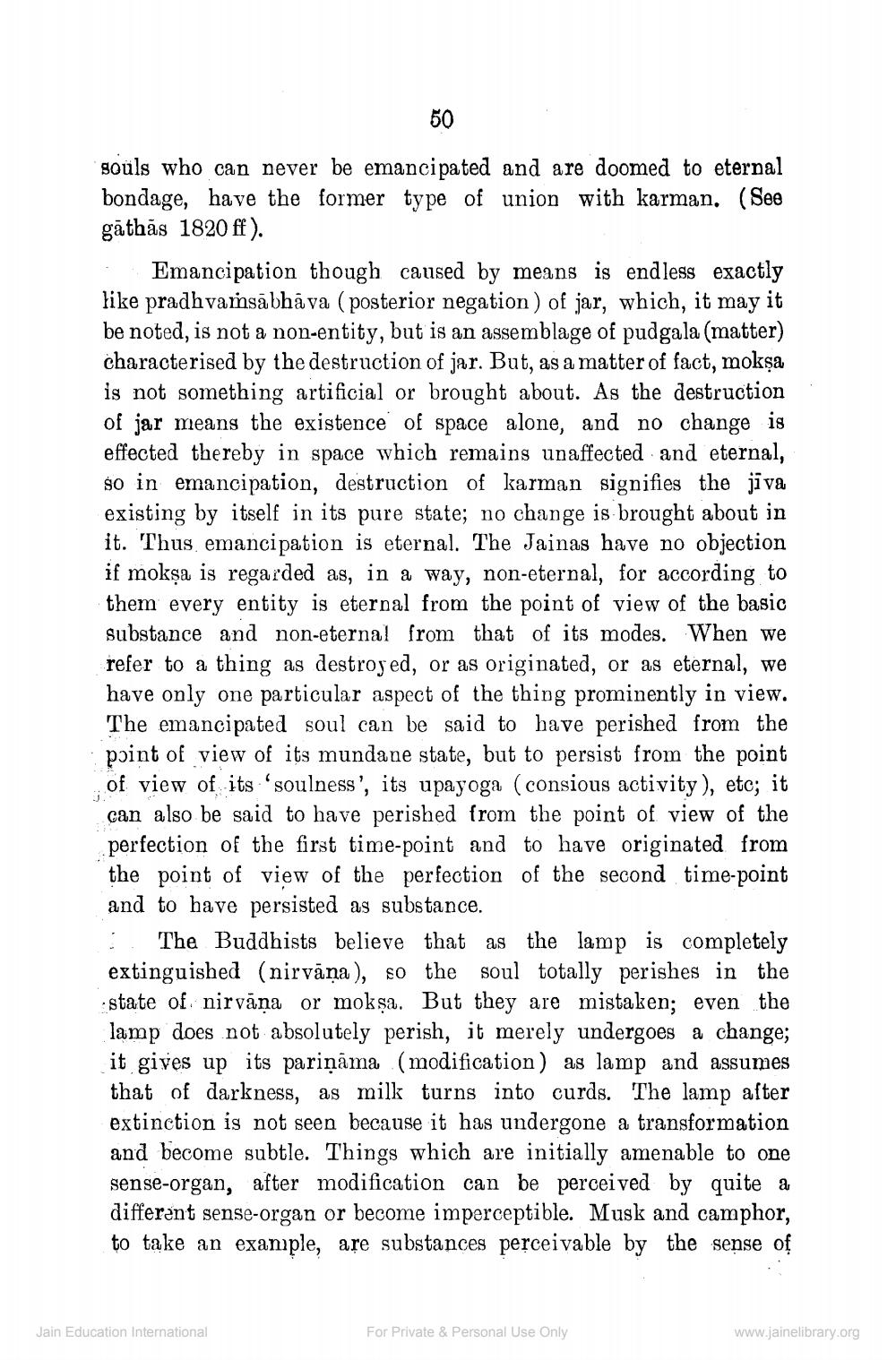________________
50
souls who can never be emancipated and are doomed to eternal bondage, have the former type of union with karman. (See gāthās 1820 ff).
Emancipation though caused by means is endless exactly like pradhvamsābhāva (posterior negation) of jar, which, it may it be noted, is not a non-entity, but is an assemblage of pudgala (matter) characterised by the destruction of jar. But, as a matter of fact, mokşa is not something artificial or brought about. As the destruction of jar means the existence of space alone, and no change is effected thereby in space which remains unaffected and eternal, so in emancipation, destruction of karman signifies the jīva existing by itself in its pure state; no change is brought about in it. Thus emancipation is eternal. The Jainas have no objection if mokṣa is regarded as, in a way, non-eternal, for according to them every entity is eternal from the point of view of the basic substance and non-eternal from that of its modes. When we refer to a thing as destroyed, or as originated, or as eternal, we have only one particular aspect of the thing prominently in view. The emancipated soul can be said to have perished from the point of view of its mundane state, but to persist from the point of view of its 'soulness', its upayoga (consious activity), etc; it can also be said to have perished from the point of view of the perfection of the first time-point and to have originated from the point of view of the perfection of the second time-point and to have persisted as substance. 1. The Buddhists believe that as the lamp is completely extinguished (nirvāņa), so the soul totally perishes in the state of nirvāņa or mokşa. But they are mistaken; even the lamp does not absolutely perish, it merely undergoes a change; it gives up its pariņāma (modification) as lamp and assumes that of darkness, as milk turns into curds. The lamp after extinction is not seen because it has undergone a transformation and become subtle. Things which are initially amenable to one sense-organ, after modification can be perceived by quite a different sense-organ or become imperceptible. Musk and camphor, to take an example, are substances perceivable by the sense of
Jain Education International
For Private & Personal Use Only
www.jainelibrary.org




